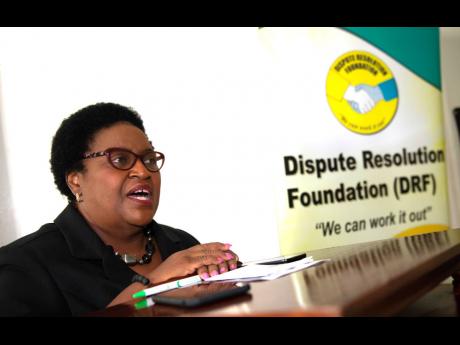Vote-buying spree
Electors demanded hike for COVID polls - ombudsman report
Politicians had to fork out more money to buy votes in the September 3 general election last year as electors increased the price for ballots because of the risks associated with the throes of a second wave of coronavirus spread, a new report published by the Office of the Political Ombudsman alleges.
“In one constituency, persons were being offered $5,000 to vote, but demanded more, otherwise they would not leave their houses to vote,” the damning report alleged.
The report said vote-buying was especially rampant among the youth.
Dr Jermaine McCalpin, lecturer at the New Jersey City University, contended that the vote-sellers are as culpable as those buying votes.
“In the conduct of elections, it is often an idea of vote-buying, but there are instances of vote-selling. So, it is a market, so you have to have a buyer and a seller for there to be commerce,” McCalpin said.
Professor Trevor Munroe, executive director of anti-corruption lobby National Integrity Action, argued that campaign-finance laws do not go far enough as the status quo still makes it very difficult to know where the politicians get so much cash to spend during election cycles.
“We do not know who pays how much for what reason in exercising that is normally a civic responsibility of funding the political process,” Munroe said as he called for further strengthening of the legislation.
Registered political parties and candidates that contested the September 3, 2020, general election were required to submit final disclosure reports as at March 2, 2021, to the Electoral Commission of Jamaica. Candidates and political parties were to report on election expenses and contributions received between August 11, 2020 and March 1, 2021.
Contributors may give a maximum of $1.5 million to each candidate and up to $31.5 million to a registered political party. A candidate spend should not exceed $15 million in election expenses and a registered political party up to $630 million for the campaign period.
But fundraising by parties and their candidates often happens ahead of the reporting period. By the time the formal campaign period starts, parties and candidates have already undertaken a big chunk of their expenditure for election paraphernalia and other services.
The report said that there were blatant breaches of the Disaster Risk Management Act, which governs COVID-19 protocols, during last year’s election campaign.
The report also stated that breaches of the Code of Political Conduct were committed by candidates and supporters despite the party leaders’ symbolic signing of an agreement on August 19, 2020, at Emancipation Park.
“The adverse conduct during the campaign period was overwhelming, as there were clear violations of the Disaster Risk Management. In general, the COVID-19 guidelines were breached, that of the Ministry of Health and Wellness and the Office of the Political Ombudsman which was agreed to by the four political parties.
“A number of candidates were observed conducting meetings with large numbers of supporters, not practising social distancing, and not wearing masks,” the report stated.
Political Ombudsman Donna Parchment Brown said her office held a forum between October 26 and 29 to review the election activities.
It was attended by representatives of the political parties, civil society, government entities, academia, the police, the media, as well as the Political Awareness and Respect Initiative.
Candidates were further singled out in the reporting, alleging they were hugging voters, thus increasing the risks of spreading the coronavirus.
“Persons were seen at gatherings without masks or in masks that were not being worn in the proper fashion,” the report stated.
“A limited number of candidates were seen handing out masks and trying to maintain distance by remaining in their campaign vehicles, though this was not found to be sufficient.”
The report recommended that if an election is again held during a pandemic, more front-line workers should be on the ground during the campaign season to ensure protocols and guidelines are followed.

